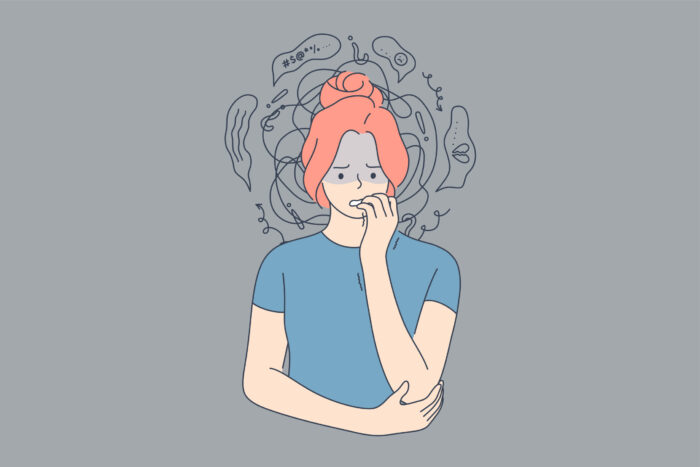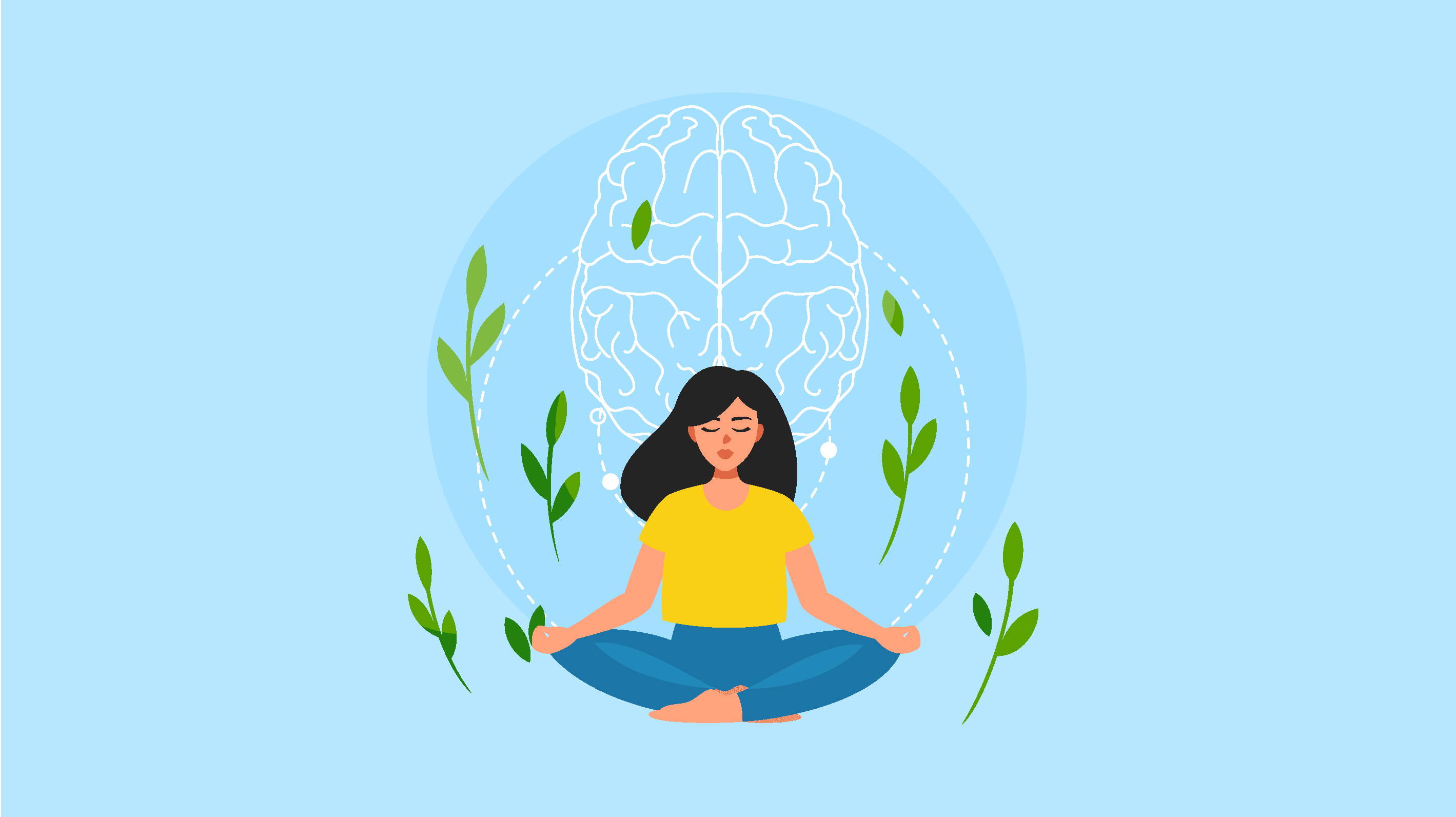Stress is a natural response that occurs within our bodies when we encounter challenging or threatening situations. While it is a common experience for many individuals, chronic stress can have detrimental effects on both our physical and mental health.
In fact, studies have shown that prolonged exposure to stress can increase the risk of heart disease and anxiety disorders. Therefore, it is crucial to find effective methods of stress relief that work specifically for each individual. In this comprehensive guide, we will explore seven natural remedies for stress relief that can help alleviate a wide range of stress-related health effects.
Exercise: A Powerful Stress Reliever
Exercise is not only beneficial for our physical health but also plays a significant role in reducing stress levels. When we engage in physical activity, our brains release endorphins, which are powerful hormones that promote feelings of happiness and well-being. These endorphins can have a positive impact on various stress-related symptoms, including improved self-esteem and decreased depression. In fact, a study conducted on middle-aged adults revealed that regular exercise can significantly enhance self-esteem and self-image, leading to reduced stress in social situations. Additionally, the release of endorphins can combat symptoms of depression, as the increased feelings of happiness can help alleviate depressive feelings often associated with stress.
Apart from the release of stress-relieving endorphins, exercise also helps build emotional resilience, enabling individuals to better cope with stress. It is important to note that exercise does not necessarily have to be intense or time-consuming to be effective. Even engaging in five minutes of physical activity daily can stimulate stress-reducing effects. Therefore, incorporating regular exercise into our daily routines, such as taking the stairs instead of the elevator or incorporating short walks throughout the day, can significantly contribute to stress reduction.
The Power of Sleep in Stress Management
Adequate sleep is vital for our overall well-being, including stress management. Lack of sleep can lead to increased levels of stress and anxiety, making it essential to prioritize quality sleep. When we sleep, our bodies undergo various restorative processes that help regulate stress hormones and promote emotional stability. Moreover, a good night’s sleep allows our brains to process and consolidate information, enhancing cognitive function and reducing stress levels.
To improve sleep quality and reduce stress, it is essential to establish a consistent sleep schedule and create a peaceful sleep environment. As well as making sure you get the right amount of sleep for your age. Avoiding caffeine and electronic devices before bedtime can also contribute to better sleep. Additionally, incorporating relaxation techniques such as deep breathing exercises or meditation into our bedtime routine can help calm the mind and promote restful sleep.
The Impact of Diet on Stress
Our diet plays a crucial role in managing stress levels. Consuming a well-balanced diet that includes nutrient-rich foods can provide our bodies with the necessary resources to combat stress. For instance, certain vitamins and minerals, such as vitamin C, magnesium, and omega-3 fatty acids, have been shown to have stress-reducing properties. Incorporating foods rich in these nutrients, such as citrus fruits, leafy greens, nuts, and fatty fish, can help alleviate stress symptoms.
In addition to specific nutrients, the overall quality of our diet can influence our stress levels. Consuming a diet that is high in processed foods, refined sugars, and unhealthy fats can increase inflammation in the body, further exacerbating stress. On the other hand, adopting a whole-food, plant-based diet that is rich in fruits, vegetables, whole grains, and lean proteins can provide the necessary nutrients to support stress management. It is important to listen to our bodies and choose foods that nourish us and promote optimal well-being.
Herbal Stress Supplements
As well as diet there are quite a few herbs that contain compounds that have been shown to reduce stress naturally. Here are a few of the most popular:
1. Ashwagandha: An Ancient Remedy
Ashwagandha, also known as winter cherry or Indian ginseng, is a herb that has been used in Ayurvedic medicine for centuries. Scientific reviews have shown that ashwagandha can be effective in treating anxiety. In one study, participants who took ashwagandha experienced a significant reduction in stress levels compared to those who took a placebo. Another study found that ashwagandha was as effective as psychotherapy in reducing anxiety scores.
Both Dr Mark Watson of Center TRT and Professor Andrew Huberman rate Ashwagandha highly for short term use. Although both suggest that it should probably only be used in bursts of a few weeks to maximise it’s effectiveness.
It’s also important to note that ashwagandha is considered likely unsafe during pregnancy and should be avoided.
2. St. John’s Wort: A Well-Known Herb for Depression
St. John’s Wort is a herb that is commonly used as a natural remedy for depression. While its effectiveness for anxiety is less established, some evidence suggests that it may help relieve anxiety symptoms. However, the results of studies on its effectiveness for anxiety have been inconsistent. St. John’s Wort can cause side effects such as anxiety, dry mouth, dizziness, gastrointestinal symptoms, fatigue, headache, and sexual dysfunction. It can also interfere with the effectiveness of certain medications, including birth control pills and antiviral medications.
3. Melatonin: More Than Just a Sleep Aid
Melatonin is a hormone that regulates sleep-wake cycles and is commonly used as a sleep aid. However, research suggests that melatonin supplements also have anxiety-reducing effects. Several studies have reported that melatonin can help reduce preoperative anxiety in patients undergoing surgical procedures. It has also shown promise in managing sleep and anxiety following a heart attack and subsequent heart procedure. While melatonin is generally safe for short-term use, long-term effects are still uncertain.
4. Valerian: A Sedative Herb
Valerian is a herb that has been used for centuries as a sedative and sleep aid. While studies on its effectiveness for anxiety have been inconclusive, some evidence suggests that it may provide benefits for mental agitation and psychological distress. However, the number of studies specifically testing valerian’s effect on anxiety is limited. Valerian can cause side effects such as drowsiness, gastrointestinal upset, headaches, heart dysrhythmias, and interfere with iron absorption. It is crucial to monitor heart rate and blood pressure, especially after meals, early in treatment to identify possible sensitivities.
5. Lavender: A Calming Aroma
Lavender is a herb known for its calming aroma and is commonly used in aromatherapy. Some research supports its effectiveness in reducing anxiety. A review of five trials found that oral lavender oil preparations improved anxiety scores in patients with generalized anxiety disorder (GAD) and other nonspecified anxiety disorders. Lavender has shown benefits in improving sleep and lowering anxiety levels in patients following a heart attack and subsequent heart procedure. However, caution should be exercised in the use of lavender, as it can cause constipation, headache, changes in appetite, and increase drowsiness when combined with sedatives.
The Calming Effects of Meditation and Mindfulness
Meditation and mindfulness practices have gained significant popularity in recent years due to their effectiveness in reducing stress and promoting overall well-being. These practices involve focusing our attention on the present moment, allowing us to cultivate a sense of calm and inner peace. Research has shown that incorporating meditation and mindfulness into our daily routines can help regulate stress hormones, decrease anxiety levels, and improve overall mental health.
There are various meditation techniques and mindfulness exercises that we can explore to find the approach that resonates with us. These practices can range from simple deep breathing exercises to guided meditation sessions or mindfulness-based stress reduction programs. By setting aside a few minutes each day for these practices, we can cultivate a sense of mindfulness and reduce the impact of stress on our lives.
The Soothing Effects of Aromatherapy
Aromatherapy, the use of essential oils derived from plants, has been used for centuries to promote relaxation and reduce stress. Essential oils contain aromatic compounds that can stimulate our olfactory system, triggering various physiological and emotional responses. Certain essential oils, such as lavender, chamomile, and bergamot, have been found to have calming properties and can help alleviate stress symptoms.
To incorporate aromatherapy into our stress management routine, we can use essential oils in various ways. Diffusing essential oils in our living spaces, adding a few drops to a warm bath, or applying diluted oils to pulse points can create a soothing environment and promote relaxation. It is important to note that essential oils should be used with caution and in accordance with proper guidelines to ensure safe and effective use.
The Healing Power of Nature
Spending time in nature has been shown to have significant stress-reducing effects. Being in natural environments can help reduce cortisol levels, a stress hormone, and promote feelings of calm and relaxation. Whether it’s a walk in the park, a hike in the mountains, or simply sitting by a body of water, immersing ourselves in nature can provide a much-needed respite from the demands of daily life.
Engaging in outdoor activities not only allows us to connect with nature but also encourages physical activity, further enhancing stress reduction. Additionally, the colors, sounds, and smells of nature can have a therapeutic effect on our minds and bodies, promoting a sense of tranquility and well-being. Therefore, incorporating regular nature walks or outdoor activities into our routines can be a powerful tool for managing stress.
The Importance of Social Connections
Maintaining strong social connections and engaging in meaningful relationships is essential for our mental and emotional well-being, as well as stress management. When we have a support network of family and friends, we have individuals with whom we can share our concerns, seek advice, and receive emotional support. This social support can help alleviate feelings of stress and provide a sense of belonging and connectedness.
Building and nurturing social connections can be done in various ways. Engaging in activities that we enjoy and that allow us to meet like-minded individuals can lead to the formation of new friendships. Additionally, participating in community or volunteer activities can provide opportunities for social interactions and contribute to a sense of purpose and fulfillment. It is important to prioritize meaningful relationships and invest time and effort into maintaining them for optimal stress management.
The Therapeutic Effects of Journaling
Journaling is a simple yet powerful tool for stress management. Writing down our thoughts, feelings, and experiences can help us process and make sense of our emotions, reducing their impact on our well-being. Journaling allows us to gain insight into our stress triggers and patterns, enabling us to develop effective coping strategies.
There are various approaches to journaling, and it is essential to find a method that works best for us. Some individuals prefer free writing, where they let their thoughts flow onto the paper without any specific structure. Others may find guided journaling prompts or gratitude journals helpful in focusing their thoughts and fostering a positive mindset. By incorporating regular journaling into our routines, we can create a space for self-reflection and emotional release, ultimately reducing stress levels.
The Benefits of Relaxation Techniques
Engaging in relaxation techniques can help activate the body’s natural relaxation response, counteracting the physiological effects of stress. These techniques aim to induce a state of deep relaxation, promoting physical and mental well-being. Some popular relaxation techniques include deep breathing exercises, progressive muscle relaxation, and guided imagery.
Deep breathing exercises involve slow, deep breaths that help slow down the heart rate and promote a sense of calm. Progressive muscle relaxation focuses on systematically tensing and releasing different muscle groups, allowing the body to release tension and relax. Guided imagery involves visualizing calming and peaceful scenes, stimulating relaxation responses in the mind and body. Practicing these relaxation techniques regularly can help reduce stress levels and promote a state of relaxation.
Conclusion
Managing stress is essential for our overall well-being, and incorporating natural remedies into our daily routines can provide significant relief. From engaging in regular exercise and prioritizing quality sleep to practicing meditation and mindfulness, experimenting with aromatherapy and spending time in nature, and nurturing social connections, there are various strategies we can explore to reduce stress levels. Additionally, journaling and engaging in relaxation techniques can help promote emotional well-being and activate the body’s natural relaxation response. By integrating these natural remedies into our lives, we can cultivate a sense of balance, resilience, and inner peace in the face of stress.
Remember, everyone is unique, and it may take some trial and error to find the combination of remedies that works best for you. Be patient and kind to yourself as you navigate your stress management journey, and don’t hesitate to seek professional guidance if needed. With dedication and a proactive approach, you can effectively manage stress and lead a happier, healthier life.








Leave a Reply
You must be logged in to post a comment.